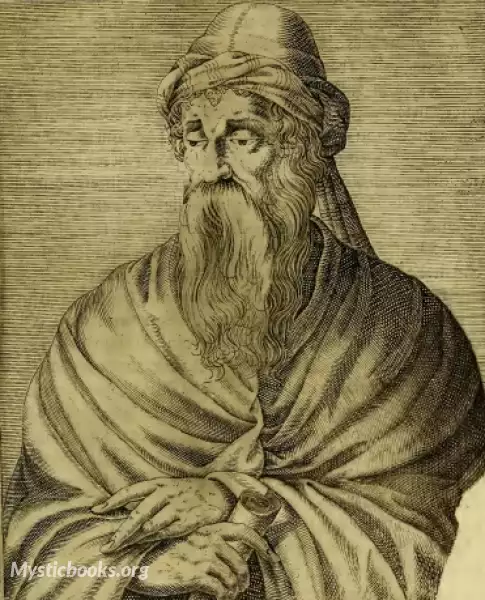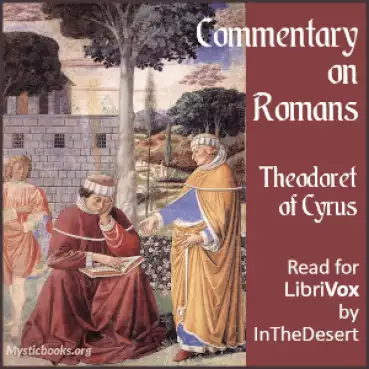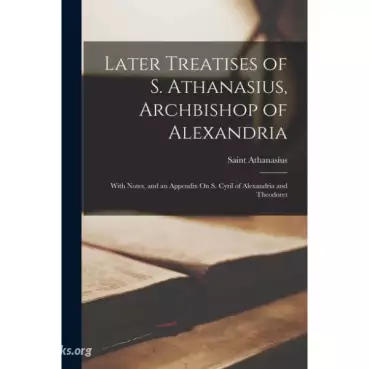
Timeline
Title
Country/Nationality
Theodoret of Cyrus
Theodoret of Cyrus or Cyrrhus was an influential theologian of the School of Antioch, biblical commentator, and Christian bishop of Cyrrhus. He played a pivotal role in several 5th-century Byzantine Church controversies that led to various ecumenical acts and schisms. He wrote against Cyril of Alexandria's 12 Anathemas which were sent to Nestorius and did not personally condemn Nestorius until the Council of Chalcedon. His writings against Cyril were included in the Three Chapters Controversy and were condemned at the Second Council of Constantinople. Some Chalcedonian and East Syriac Christians regard him as a "full" saint.
According to Tillemont, he was born at Antioch in 393, and died either at Cyrrhus ("about a two-days' journey east of Antioch" or eighty Roman miles), or at the monastery near Apamea (fifty-four miles south-east of Antioch) about 457.
The following facts about his life are gleaned mainly from his Epistles and his Religious History (Philotheos historia). He was the child of a prosperous Antiochene couple who had been childless for many years. Encouraged by the fact that his mother had been cured of a serious eye complaint and converted to a sober life by Peter the Galatian, an ascetic living in an unoccupied in the locality, Theodoret's parents sought further help from the local holy men, since she had been childless for twelve years. For years their hopes were fed but not fulfilled. Eventually, Theodoret's birth was promised by a hermit named Macedonius the Barley-Eater on the condition of his dedication to God, whence the name Theodoret ("gift of God").
Theodoret received an extensive religious and secular education. The actual evidence given to us by Theodoret suggests that his education was exclusively religious. He paid weekly visits to Peter the Galatian, was instructed by Macedonius and other ascetics, and at an early age became a lector among the clergy of Antioch. Though he speaks of Diodore of Tarsus and Theodore of Mopsuestia as his teachers, this is improbable - though it was certainly their theological tradition in which he was brought up. He clearly, also, though, received an extensive classical education, unsurprisingly for the child of prosperous parents in a city which had long been a centre of secular learning and culture. His correspondents included the sophists Aerius and Isokasius. He understood Syriac as well as Greek, but was not acquainted with either Hebrew or Latin. In his letters he quotes from Homer, Sophocles, Euripides, Aristophanes, Demosthenes and Thucydides. When he was twenty-three years old and both parents were dead, he divided his fortune among the poor (Epist. cxiii; P.G., LXXXIII, 1316) and became a monk in the monastery of Nicerte not far from Apamea. There he lived for about seven years.
In 423 he left as he had been appointed Bishop of Cyrrhus, over a diocese about forty miles square and embracing 800 parishes, but with an insignificant town as its see city. Theodoret, supported only by the appeals of the intimate hermits, himself in personal danger, zealously guarded purity of the doctrine. He converted more than 1,000 Marcionites in his diocese, besides many Arians and Macedonians; more than 200 copies of Tatian's Diatessaron he retired from the churches; and he erected churches and supplied them with relics.
His philanthropic and economic interests were extensive and varied: he endeavoured to secure relief for the people oppressed with taxation; he divided his inheritance among the poor; from his episcopal revenues he erected baths, bridges, halls, and aqueducts; he summoned rhetoricians and physicians, and reminded the officials of their duties. To the persecuted Christians of Persian Armenia he sent letters of encouragement, and to the Carthaginian Celestiacus, who had fled the rule of the Vandals, he gave refuge.
Books by Theodoret of Cyrus

Commentary on Romans
"Of all the Fathers, who have composed works of different kinds, Theodoret is one of those who has been very happy in every one of them. There are some who have been excellent writers in matters of controversy, but bad interpreters. Others have been...

Later Treatises of Saint Athanasius, Archbishop of Alexandria
Saint Athanasius of Alexandria was a prominent early Christian theologian and bishop of Alexandria in the 4th century. He is best known for his defense of the doctrine of the Trinity and his role in the conflict with Arianism. Some of his later treat...